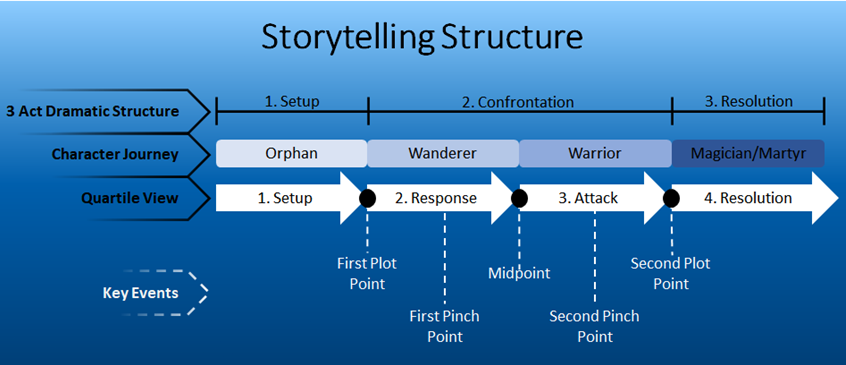The Story Validation Checklist
How do you judge the quality of your work when you're new to something and don't have a frame of reference? I assume this must be a problem for all first time creators in any medium. You don't know what you don't know. I struggled to judge the quality of my third draft of Spacewalker until I found a measuring stick in Great Stories Don't Write Themselves by Larry Brooks.
May 2020
Larry posited a few interesting theories that I latched onto.
- Good stories follow widely recognizable "fundamental" story structures
- Beginnings, middles, and ends serve the same role in every story.
- Protagonists act within each distinct portion of the story in a generally recognizable manner
- If the above are true, then it is possible to derive criteria which represent storytelling best practices
The engineering side of my brain lit up in excitement. I could "test" how well my story aligned with fundamental story structure using the criteria provided by the book. First, I distilled my high-level takeaways into the graphic below.

Then I re-read Larry's book and, chapter by chapter, I interpreted and simplified his criteria into a Story Validation Checklist for each major structural element and key event. I tracked each item with a simple Yes / No / Maybe / N/A and provided elaborations for each item where necessary.
The table below shows what this looked like for the first six criteria of the First Quartile.
| # | Criteria | Met? | Elaboration |
| 1 | All 1Q scenes serve a contextual mission to set up the story (preparation for surgery prior to performing surgery). The dramatic problem not yet posed and the hero not yet looking for his “answers” | Y | Tentatively think this is met. Prologue establishes the Seekers, goal of the Ancestor Star, and foreshadows villains. Chapters 1-8 establish Edred and most of the crew and the memory stuff is discussed, but I think serves as foreshadowing to the FPP revelation, which is his point of no return. |
| 2 | Optimal setup length is 20-25% measured by pages or word count | Y | Through chapter 8 is 28k of 120k words which is ~25% |
| 3 | Story opens with a hook and can include prologue. Should engage the reader at an emotional or intellectual level and want to seek answers. | Y | We establish that conventional wisdom is wrong and the withering world is not as it seems. Introductions to the primary conflict should be compelling as well (some mystery and betrayal). Chapter 1 starts with a near drowning and brand new setting, which should keep readers further interested |
| 4 | First paragraph on page 1 sizzles. Generally don’t use dialog or scene description. State something that is immediately germane to the story. | Y | I like the current hook of the first line and have gotten strong feedback about its improvement over previous iterations |
| 5 | Protagonist is introduced early in first half of 1Q | Y | We’re introduced to Edred in chapter 1 and learn more about him in subsequent chapters, including his perception of himself, and the importance he places in his work, desire to not be on Earth |
| 6 | Story world is presented and explored in an introductory context. It’s generally a mistake to dedicate much time after 1Q to describing the story world. | Y | We establish the status of Earth in the prologue and reinforce several times through chapter 8 (squalor, poverty, disease, etc). The ship is explored thoroughly in chapters 1-3 with exposition and description. |
As with just about anything I share on this blog... a lot of this no longer applies! I used to have a prologue that took place on Earth and featured a few mysterious characters. The third draft was still quite a bit longer at ~120k words. And since I had a prologue, my opening hook and opening line were very different then compared to what I use today.
Throughout this exercise, I ended up meeting a lot more of the criteria than I failed. Where I strayed from the checklist, I interrogated why I made certain story decisions and ended up making a few more changes as a result. After I finished this exercise, I had the confidence to throw this draft over the fence to my beta readers. The feedback was great, especially regarding the main character's arc. I even got good feedback from my brutally honest beta reader who didn't like the previous draft!
I haven't had to fully revisit the Story Validation Checklist since that third draft, partly because doing this exercise helped me internalize a lot of the important storytelling principles for structure and characters. But I have ideas floating around my head for a sequel to Spacewalker--and I even have a few immature chapters sketched out. Once I'm in the thick of writing a new book, I will definitely revisit this exercise.